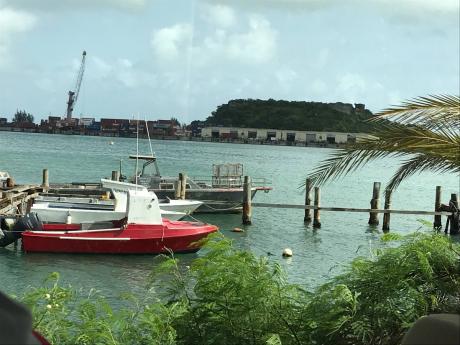Earth Today | Study shows value in boosting country ownership over climate money
A NEW Adaptation Fund (AF) study highlights its Climate Finance Readiness Programme, which has been found to provide valuable and growing support to building the capacity of vulnerable countries to access and manage financial resources across the climate finance landscape.
The ‘Study on Readiness and Capacity Building for Direct Access to Adaptation Finance’ also shows that greater financial resources and more coordinated approaches among climate funds to provide readiness and capacity-building support would be beneficial to address challenges in climate finance.
“Over the years, the Adaptation Fund pioneered Direct Access, and its Readiness Programme has been the engine of building national adaptation capacity and ownership for the most vulnerable countries. Developing countries will benefit further from a deliberate and collaborative effort among global climate funds to ensure coherence of climate finance support, which has been expanding as demand has continued to rise,” said board chair for the Fund, Ibila Djibril.
Based on the implementation plan developed for the medium-term strategy of the fund, from which Jamaica has benefited, its Readiness Programme provides financial and non-financial support to help developing countries obtain accreditation, undertake project development, advance knowledge management, and deliver technical assistance and South-South cooperation grants, workshops, and related activities.
It has further evolved to help coordinate readiness activities with partners, such as through a Community of Practice of Direct Access Entities.
Recognising its efficient and effective implementation, the AF’s readiness and capacity-building support has been seen as crucial by the global community, the study notes.
“The analysis proves that the Adaptation Fund’s leadership and innovative actions in increasing country ownership and empowering the most vulnerable communities have played a vital role in helping countries build resilience and shaping the global climate change adaptation agenda,” said AF manager Mikko Ollikainen.
The study also examines where readiness and capacity building for Direct Access are positioned within the climate finance architecture and how they are provided by climate funds under the United Nations Framework Convention on Climate Change.
By reviewing the experience of the AF, Green Climate Fund (GCF), Global Environment Facility, and other funds, the study provides analysis of current readiness and capacity-building programmes, and draws lessons learnt to make recommendations.
Increased understanding
“This report contributes to an increased understanding of how readiness and capacity building for Direct Access are understood globally, and offers a set of recommendations of ways to further improve and increase support for implementing entities seeking to access climate finance,” said knowledge management officer Cristina Dengel, who coordinated the study as part of the fund’s work in its Learning and Sharing pillar.
Significant efforts have been made by development agencies and global climate funds to increase ownership of climate finance and develop capacities to enable countries to access resources from funds through Direct Access, the study found.
While AF’s Readiness Programme was launched in 2014, as demand for Direct Access has increased, more readiness-support programmes were launched by other climate funds to contribute to building the capacity of developing countries to plan, access, deliver, and monitor climate finance.
This support has been provided in the form of technical assistance and capacity-building programmes, coordinated knowledge-dissemination efforts, and the Community of Practice of Direct Access Entities, which is a community established and driven by AF national implementing entities and GCF direct access entities, with joint support from the AF, GCF, and organisations such as the African Development Bank and other funders.


